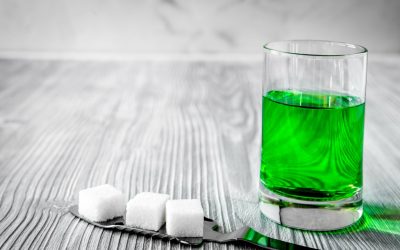Most of us are familiar with the concept of a loop from a traffic roundabout or a circular route around a city. Millions of Americans drink alcohol, sometimes to excess, sometimes to the extent that they develop into heavy drinkers, become alcohol dependent, or progress to alcohol use disorder (AUD). Some have a co-occurring mental health disorder such as depression or anxiety. Yet, whether they have depression to begin with or it occurs from heavy alcohol use, they can find themselves caught in an alcohol-depression-anxiety cycle. While alcohol may provide temporary relief from distressing symptoms, it can ultimately exacerbate mood swings in individuals with bipolar disorder. Alcohol is a central nervous system depressant, meaning it can intensify feelings of depression and lethargy.
Find Treatment
Because of this shared connection, treatment for both should include a diet to improve gut function and reduce endotoxin load that contributes to neuroinflammation. Following a Mediterranean diet rich in omega-3s, for example, might be one recommendation. Researchers agree that alcohol and depression have a bidirectional relationship, meaning that depression can cause overuse of alcohol, but overuse of alcohol can also cause depression. Taking action to manage negative emotions as you experience them can help keep them from getting too overwhelming.
Family Therapy

Substance-induced depression is different from major depressive disorder and, by definition, should improve once a person stops consuming substances (such as alcohol). If you https://pajero888slot.net/dry-drunk-syndrome-how-to-overcome-sober-drunk/ feel depressed even when you don’t drink, or you drink because you feel depressed, it’s best to reach out to a mental health professional. Drinking water may not have a direct impact on feelings of depression, but rehydrating can absolutely help you start feeling better physically. As hangover symptoms begin to subside, the emotional effects may follow. Some people never notice feelings of depression — or any negative effects at all — after drinking moderately.
Instead of Turning to Alcohol, Seek More Treatment
Chronic moderate consumption quietly undermines mood stability over weeks or months. For some, depression hits first and drinking becomes a way to self-medicate. If you have concerns about your alcohol use, counseling and treatment programs can help you overcome your misuse of alcohol.
- Alcohol use disorders might be more widespread in individuals who also have depression.
- You can also get help from Alcoholics Anonymous or an alcohol treatment center in your area.
- Please know that everyone here at FOLX genuinely wants to help you in a supportive and non-judgmental way.
- Mental health treatment approaches have improved significantly over the years for treating both depressive disorders as well as alcohol use disorders.
- When you have healthy habits in place to cope with unwanted feelings, you’ll probably find it easier to use these strategies to push back against distressing emotions you might experience while drinking.
- During therapy, you can learn coping mechanisms that can help you return to life without drinking.
Negative consequences can potentially build, leading to increased chances of facing both issues. While this initially leads to euphoria, the effect is short-lived. Group therapy, family counseling, and peer support create a network of support. This complex interplay highlights the need Alcoholics Anonymous for early intervention and sustained treatment to mitigate these long-term effects. This dual diagnosis presents complex challenges, as the two conditions can interact and exacerbate each other.
Alcohol can worsen negative emotions

After a certain point where social drinking becomes heavy drinking and then out-of-control drinking, alcoholism is quick to follow. It also likely requires getting professional help, since once you start feeling miserable again, reaching for a drink may well be impossible to control. If alcohol withdrawal symptoms set in, there’s even more compulsion to drink to quell the unpleasant symptoms. It doesn’t work, though, and you’re right back in alcohol makes depression worse the alcohol cycle. Drinking may feel good in the moment, but it only makes the problem of depression worse, especially when you are also on medications.
- Emerging research has found that there is a genetic link between AUD and depression.
- These withdrawal symptoms can include anxiety, irritability, and depression.
Excessive alcohol drinking can also cause problems socially, such as issues with family, school, employment, and friends. This could have a carryover effect on depression since loneliness and lack of social support are linked to depression. Crystal Raypole has previously worked as a writer and editor for GoodTherapy. Her fields of interest include Asian languages and literature, Japanese translation, cooking, natural sciences, sex positivity, and mental health. In particular, she’s committed to helping decrease stigma around mental health issues. But regularly drinking more alcohol than these guidelines recommend can pose a number of health risks, including depression.
